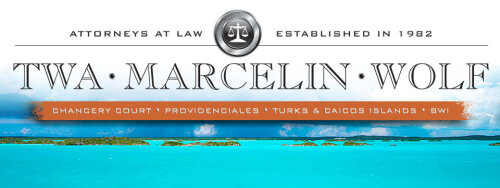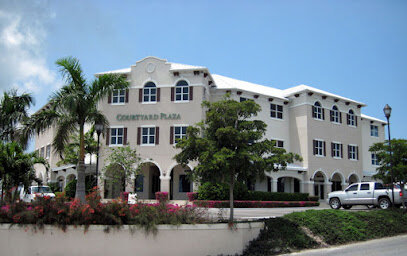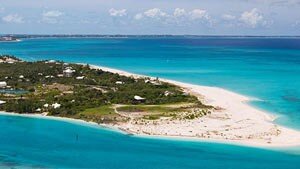Best Public-Private Partnerships (PPP) Lawyers in Turks and Caicos Islands
Share your needs with us, get contacted by law firms.
Free. Takes 2 min.
Or refine your search by selecting a city:
List of the best lawyers in Turks and Caicos Islands
About Public-Private Partnerships (PPP) Law in Turks and Caicos Islands
Public-Private Partnerships (PPP) in Turks and Caicos Islands are collaborative arrangements between the government and private sector entities for the development, financing, operation, or management of infrastructure and public services. These projects aim to leverage the expertise, efficiency, and capital of private investors to support public projects such as transportation, utilities, healthcare, and education. The legal landscape for PPP in Turks and Caicos Islands is designed to balance public interest, risk allocation, and commercial viability, ensuring that both parties benefit while delivering essential services to the community.
Why You May Need a Lawyer
Engaging in a PPP project involves complex negotiations, legal documentation, and regulatory compliance. You may need legal advice or representation in several situations, including:
- Understanding the eligibility requirements and selection process for PPP projects
- Drafting and reviewing contracts or concession agreements with the government
- Ensuring compliance with local laws and sector-specific regulations
- Negotiating risk allocation, project finance, and performance obligations
- Resolving disputes between public and private partners
- Advising on land use, intellectual property, taxation, and employment issues specific to PPP
- Guiding on termination, default, or renegotiation of PPP agreements
Legal support helps both the public and private sides avoid pitfalls, clarify obligations, and achieve successful outcomes for PPP initiatives in the Turks and Caicos Islands.
Local Laws Overview
The Turks and Caicos Islands do not have a single consolidated PPP law. Instead, PPP projects are regulated under several local acts, regulations, and policy guidelines that relate to public procurement, investment, infrastructure development, and sector-specific matters. Key aspects include:
- Procurement Laws - Public contracts must follow transparent procurement processes, ensuring fair competition.
- Concession and Licensing Arrangements - Long-term agreements may confer specific rights and obligations for project development, financing, operation, and transfer.
- Sector Regulations - Energy, water supply, transportation, and health sectors have additional regulatory requirements.
- Investment Incentives - There may be special incentives or tax arrangements for approved PPP projects.
- Environmental and Planning Approvals - Compliance with environmental and zoning laws is mandatory before starting operation.
- Dispute Resolution Mechanisms - PPP agreements usually specify how disputes are managed, including alternative dispute resolution methods.
PPP law in the islands continues to evolve, so it is important to seek current legal guidance for your specific project.
Frequently Asked Questions
What is a Public-Private Partnership (PPP)?
A PPP is a collaboration between a government entity and a private sector company to finance, build, operate, or maintain public infrastructure or services, sharing risks and rewards.
Who can participate in PPP projects in Turks and Caicos Islands?
Both local and international private firms can participate, provided they meet the eligibility criteria and comply with local procurement laws and regulations.
What types of projects are suitable for PPP in Turks and Caicos Islands?
Common PPP projects include roads, ports, airports, energy facilities, water supply systems, schools, and healthcare facilities.
How are PPP contracts structured?
PPP contracts detail the rights and responsibilities of each party, including financial arrangements, performance standards, risk allocation, duration, and terms for termination or renewal.
What are the key legal risks in PPP agreements?
Common legal risks include changes in law, political or regulatory risks, failure to meet obligations, and disputes over payments or performance.
Do PPP projects require government approvals?
Yes, PPP projects generally need multiple approvals, including procurement clearance, environmental permits, and sector-specific licenses.
Are there special tax incentives for PPP projects?
Some PPP projects may qualify for investment incentives such as tax holidays or duty exemptions, subject to government approval and compliance with relevant legislation.
How are disputes in PPP projects resolved?
Dispute resolution mechanisms are usually set out in the PPP contract and may include negotiation, mediation, arbitration, or litigation in local courts.
What is the typical duration of a PPP agreement?
PPP agreements often run for 15 to 30 years, depending on the project's size and sector, with terms outlined in the contract.
Can PPP contracts be amended after signing?
Amendments are possible but typically require mutual consent and may need regulatory approval to ensure alignment with public policy and procurement rules.
Additional Resources
If you are considering a PPP project in Turks and Caicos Islands, the following resources may be helpful:
- Turks and Caicos Islands Government - Ministry of Finance, Investment and Trade
- Procurement Board of the Turks and Caicos Islands
- Turks and Caicos Islands Investment Agency
- Regulatory authorities for industry-specific guidance, such as energy, water, transport, and health
- Professional associations, such as the Turks and Caicos Islands Bar Association, for finding qualified legal experts
Next Steps
If you need legal assistance with a Public-Private Partnership in Turks and Caicos Islands:
- Gather documentation related to your project, including business plans, draft contracts, and correspondence with public authorities
- Identify the specific legal issues you need help with, such as procurement, negotiation, contract drafting, or dispute resolution
- Consult with a qualified attorney specializing in PPP law and local regulations
- Discuss your objectives, project details, and concerns with your lawyer to obtain tailored advice
- Stay informed about regulatory changes that may affect your PPP project
Professional legal guidance increases the likelihood of a successful and compliant PPP project in Turks and Caicos Islands, helping protect your interests and facilitate smooth collaboration with governmental partners.
Lawzana helps you find the best lawyers and law firms in Turks and Caicos Islands through a curated and pre-screened list of qualified legal professionals. Our platform offers rankings and detailed profiles of attorneys and law firms, allowing you to compare based on practice areas, including Public-Private Partnerships (PPP), experience, and client feedback.
Each profile includes a description of the firm's areas of practice, client reviews, team members and partners, year of establishment, spoken languages, office locations, contact information, social media presence, and any published articles or resources. Most firms on our platform speak English and are experienced in both local and international legal matters.
Get a quote from top-rated law firms in Turks and Caicos Islands — quickly, securely, and without unnecessary hassle.
Disclaimer:
The information provided on this page is for general informational purposes only and does not constitute legal advice. While we strive to ensure the accuracy and relevance of the content, legal information may change over time, and interpretations of the law can vary. You should always consult with a qualified legal professional for advice specific to your situation.
We disclaim all liability for actions taken or not taken based on the content of this page. If you believe any information is incorrect or outdated, please contact us, and we will review and update it where appropriate.
Browse public-private partnerships (ppp) law firms by city in Turks and Caicos Islands
Refine your search by selecting a city.














